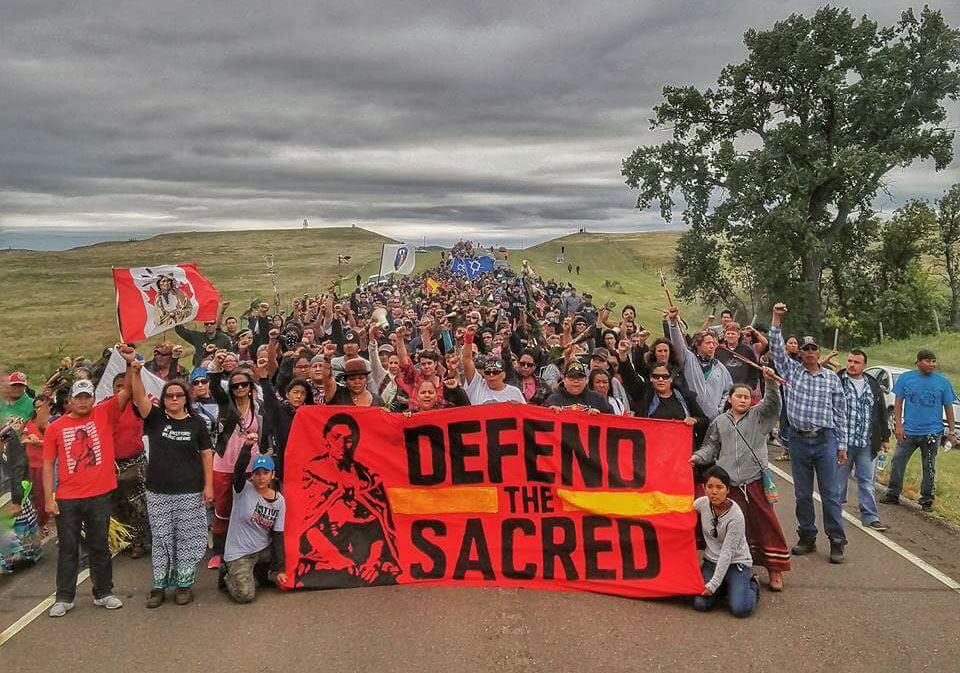Adverse Childhood Experiences (ACEs) have come to the attention of researchers and policymakers as key determinants of public health outcomes. However, the relationship between public health and settler colonialism, with its complex spatial and temporal histories of violence and dispossession of Indigenous populations from their land, has been sorely overlooked.
New work published in the journal Pediatrics seeks to remedy this oversight by emphasizing the roles of historical trauma and ongoing struggles for land rights and sovereignty in the health of American Indian and Alaska Native (AI/AN) youth and the role of pediatricians in promoting healing from historical trauma and dispossession.
 Due to the impact of settler colonialism, Indigenous youth in what is now the U.S. often experience a higher number of negative life events and greater psychological distress. In addition, racism and minority stress significantly impact youth mental health. For example, a 2016 study found that discrimination based on minority status may precede the emergence of psychosis.
Due to the impact of settler colonialism, Indigenous youth in what is now the U.S. often experience a higher number of negative life events and greater psychological distress. In addition, racism and minority stress significantly impact youth mental health. For example, a 2016 study found that discrimination based on minority status may precede the emergence of psychosis.
Indigenous American youth face unique challenges in terms of their historical and ongoing relationship with a federal legal system that has eroded – often through outright theft and genocide – historical and cultural attachments to land, ancestors, and natural resources. (For more on legal processes of racialization and racialized exclusion through the operation of U.S. property law, see Cheryl Harris’s landmark 1993 essay, “Whiteness as Property” or K-Sue Park’s “The History Wars and Property Law: Conquest and Slavery as Foundational to the Field.”)
Acknowledging this history is crucial for pediatricians seeking to adequately address AI/AN youth’s health needs. As the authors argue:
“Although historical contexts and an understanding of land rights and sovereignty are outside of typical provider education, … knowledge of these complex topics can allow pediatric providers to serve AI/AN patients and communities.”
The environment is a critical determinant of health for developing bodies because of children’s sensitivity to environmental pollutants. Further, temporal aspects of the developmental environment, such as the historical and ongoing traumas of dispossession and genocide, affect AI/AN health.
These spatiotemporal factors, intricately entangled with property, have contributed to the protracted struggles over the Keystone XL Pipeline (2010) and Dakota Access Pipeline (2014). In addition to their marked impacts on pollution and clean water access, the terms of struggle over the legitimacy of these pipeline projects are structured by longstanding battles over legal and social rights between white settlers and Indigenous nations.
The traumas of settler colonialism in the Americas, for example, genocide and massive displacement due to land theft, exist not simply in the past but constitute an ongoing process of U.S. property practices. Today these practices emerge as systemic and structural racism, allocation of land rights, and budgeting of federally provided health care, which all exacerbate health inequities to the detriment of Indigenous peoples.
As the authors point out, the importance of spatiotemporal determinants of health requires pediatricians to be responsive to historical, spatial, and legal forces that structure and shape the possibilities for IN/IA youth to thrive.
“Providers also have ample opportunity to advocate for legislation aimed at prevention … [and] can help direct policy and advocacy efforts aimed at reducing the long-lasting effects of settler colonialism and improve health outcomes for [American Indian and Alaska Native] (AI/AN) youth,” the authors write.
“It is critical that governments and institutions respond proactively to preserve natural resources and reverse climate change to prevent these deleterious effects on child health.”
It is imperative for pediatricians caring for AI/AN youth to understand the importance of connection to the land and the environment and its critical role in health and healing for AI/AN communities.
As this article suggests, however, healing the ongoing traumas of settler colonialism will require more than a shift in medical providers’ understanding of Indigenous health; it will require, at the very least, reparations of land and resources crucial to AI/AN survival.
****
Burns, J., Angelino, A., Lewis, K., Gotscsik, M. E., Bell, R.A., Bell, J., and Empey, A. (2021). Land Rights and Health Outcomes in American Indian/Alaska Native Children. Pediatrics 148(5), e2020041350 DOI: 10.1542/peds.2020-041350 (Link)













